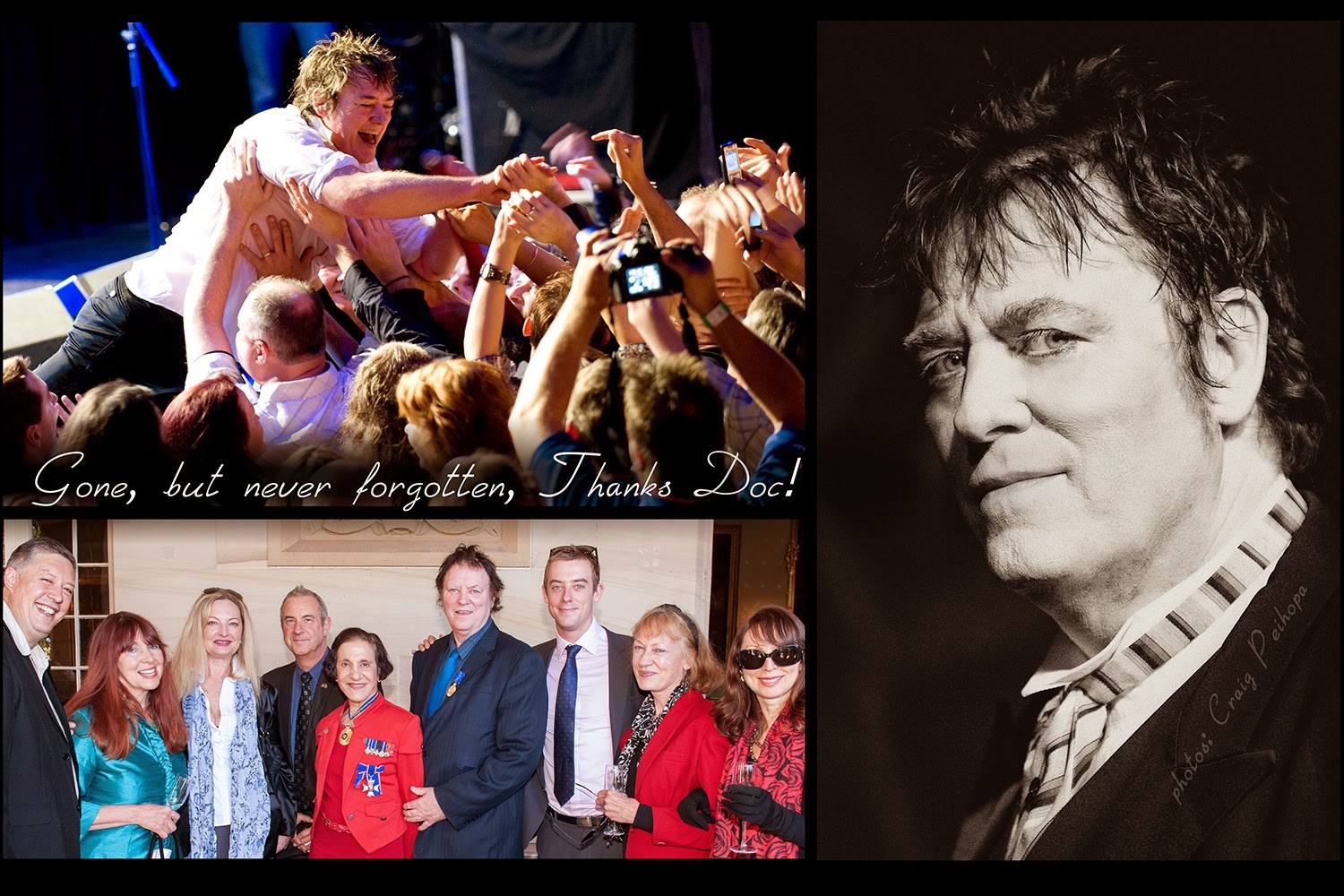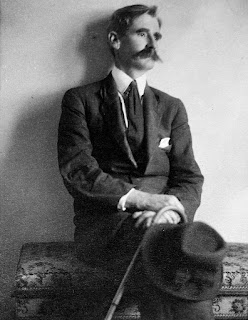An Australian Rock Music legend leaves the stage
I had the wonderful opportunity to photograph and meet and know Doc over a few years and am grateful for that. We shared a few great conversations and laughs. I loved this article from Darryl Mason, and wanted to share it to the people who read my blog who may not have seen this great article about a great legend of Australian Music. I am also including a video of the Australian story feature of Doc. Farewell Doc
Doc Neeson: thanks for the rock, Doc
by Darryl Mason
The Angels singer, who has died aged 67, gave everything to be one of Australia's most incendiary frontman, and will have my – and other fans' – eternal gratitude
Playing a role ... Doc Neeson, singer with the Angels.
“I’m Irish, so I know what it’s like to be on the outside,” Bernard ‘Doc’ Neeson said to me in an interview in the early 1990s. “I’ve always felt ... like I didn’t really belong.”
How can that be, I asked, you’re the lead singer of one of Australia’s biggest bands. You have thousands of people every night at the Angels' shows going berserk, cheering you on.
“There’s still a distance,” he said, his voice trailing off. “There’s a restlessness. We never stay in one place for more than a night or two, we’re always on the move. The connections you make are always fleeting.”
When Neeson finally stopped moving on, in January 2000, after a car accident left him with injuries that had doctors telling him he had no choice but to stop performing, the stillness of being at home for months almost killed him. The Angels were over, he’d decided. He announced he’d left the band in a New Idea interview. The rest of the band learned of his plans when the mag hit the newsstands.
Unable to tour or perform, stripped of the nightly admiration and adoration of thousands, Neeson sank into a miasma of depression, alcohol and painkiller abuse, and he contemplated suicide more than once.
Rehab, which he undertook in Los Angeles in the mid-2000s, and reconnecting with his children in Australia – sons he felt he had abandoned for life on the road with the Angels – pulled him some of the way out of the blackness, but the depression never completely lifted.
The restlessness of Neeson’s being continued through the last decade of his life. Multiple solo and band projects, numerous charity works, shows for Australian troops stationed in Iraq and Afghanistan, unfulfilled plans to act in movies and theatre soaked up the 2000s.
A hugely successful reunion tour with the original members of the Angels in 2008 seemed like a new start but it all fell apart in 2010 when Neeson refused to record a new Angels album, and told Rick and John Brewster, who he’d formed the Angels with in the early 1970s, that he didn’t want to keep up the nightly slog of touring.
An alcoholic, he was charged with drink-driving in November 2011. It was a fourth offence in a few years and it almost sent him to jail. The Brewsters had started a new line-up of the Angels a few months earlier,replacing him with the Screaming Jets’ singer Dave Gleeson. For Neeson, the fact that they could continue without him was deeply painful.
While the band he co-founded toured hard with Gleeson, to great success, and released a new studio album, Doc Neeson kept playing small clubs and pubs as a solo artist. Solo album plans were delayed again and again. The shows were impacted by ongoing health problems, but his fans still loved him and kept turning up in droves. He took the time to meet them, pose for photos. He gave his time to charities, including Miracle Babies, turned up at anti-fracking protests in Sydney, and led a memorable march of more than 1,000 people through the streets of inner-city Newtown to try to stop the closure of a live rock pub.
In mid-2012, Neeson began to reconnect with former members of the Angels from 1990s line-ups and the Angels 100% were formed. They announced a rival tour for 2013 to the Brewsters-Gleeson band, and picked up support slots on a Guns N' Roses tour. Plans to record an Angels 100% album were in the works, new songs were being written.
It seemed, for a time, that Doc Neeson was most definitely back in the game.
In mid-December 2012, the Angels 100% played a private show to thousands of miners in remote Western Australia. It was to be their first and final show.
Two weeks later Neeson collapsed at a family Christmas dinner and soon after was diagnosed with brain cancer. In January 2013 all his plans for touring and recording were cancelled so he could be treated for the disease. He died on Wednesday morning.
In the late 1980s, hours before a sold-out show to 2,000 people at Sydney’s Coogee Bay Hotel, I asked him in an interview if he still wanted to pursue his first love, acting. “Most definitely,” he said.
He recounted how much he’d enjoyed a guest role on the TV show Rafferty’s Rules and sighed as he talked about the movie roles he’d almost had. He’d been offered the role of Mel Gibson’s Mad Max, he claimed, but had touring commitments which made the shooting schedule impossible.
Neeson had also originally been cast in the Colin Friels role in Monkey Grip in 1980, when the Angels were the biggest band in Australia. He had to give up the part, two months before shooting began, for a US tour. Another 1987 film, with the director George Gittoes, lost funding after he’d spent months preparing for the role and talking up his new life as an actor in the media. The disappointments were crushing. That one, Doc said, of the Gittoes movie role of an alien sent to Earth to learn what human art meant, could have been “the role of a lifetime”.
But isn’t playing Doc Neeson the role of a lifetime? I asked him. You created this character, you wrote him, you perform Doc Neeson in sold-out shows night after night, to critical acclaim and hundreds of thousands of fans, fame beyond a level most Australian actors will ever experience.
He said nothing for a while, and then, in a near whispered voice, he mumbled: “Doc consumed me.”
He’d told Rick Brewster something similar in 1980: “Bernard isn’t here anymore.’
The boy who snuck into Belfast cinemas to escape the 1950s sectarian violence in the streets outside and dreamed of becoming an actor; who moved with his family to Elizabeth, South Australia, in the 1960s and briefly taught primary school; who escaped the Vietnam war by serving as an army teacher (a "chalkie") and returned to university to complete degrees in film and theatre; who then went on to front the most consistently popular and successful rock band in Australia's history, finally got his childhood dream of fame.
He wrote his own role of a lifetime, and lived it, often to the extreme.
And now he’s gone.
His music survives. More than 14 studio albums with the Angels, a dozen hit singles. And one last song. In the final months of his life, Neeson recorded Walking in the Rain, a moving, atmospheric spoken-word single in that unforgettable, deep and warm Irish brogue.
And now thousands of people that Doc Neeson rocked, helped and inspired, whose lives were changed by their contact with him, even just by having seen him perform live and listening to Angels records, now pour out their memories and tributes on social media and websites.
I am but one of them.
Thanks, Doc, thanks for all the rock. You saved me, too.




Comments